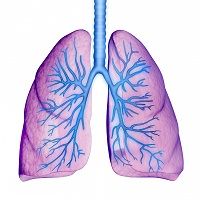Article
Equipping COPD Patients with Coping Skills Has Widespread Benefits
Author(s):
Stress management, practice relaxation, and light exercise for patients with chronic obstructive pulmonary disease (COPD) can improve both their mental and physical states, according to researchers from Duke University.

Stress management, practice relaxation, and light exercise for patients with chronic obstructive pulmonary disease (COPD) can improve both their mental and physical states, according to researchers from Duke University.
With 15 million Americans suffering from COPD, the disease is widely linked to a decrease in quality of life (QoL), and increases in mortality and morbidity.
“Patients with COPD do not often seek mental health services,” said James Blumenthal, PhD, in a news release that accompanied publication of the study results. “Given the other issues patients face with this illness, they may not feel as though mental health treatment is a priority.”
Blumenthal is the JP Gibbons Professor of Behavioral Medicine in the Department of Psychiatry and Behavioral Sciences at Duke.
For the study, published in Psychosomatic Medicine, a population of patients with COPD were provided with either coping skills training (CST; n=147) via telephone or with COPD education (COPD-ED; n=151).
To determine the intervention’s effectiveness, patients completed QoL instruments, pulmonary function tests, and functional measures in addition to committing to follow-up for 4.4 years.
In doing so, the researchers discovered COPD patients given CST had better QoL (p=.001), including lower rates of depression (Cohen d = 0.22 [95% confidence interval, or CI = 0.08-0.36]) and anxiety (d = 0.17 [95% CI = 0.02-0.33]), and better overall mental health (d = 0.17 [95% CI = 0.03-0.32]), emotional role functioning (d = 0.29 [95% CI = 0.10-0.48]), vitality (d=0.27 [95% CI = 0.11, 0.42]) and social functioning (d = 0.21 [95% CI = 0.03-0.38]).
Compared to patients who underwent COPD-ED, CST subjects also experienced better somatic QoL (p = .042), with larger improvements in pulmonary QoL (d = 0.13 [95% CI = 0.01-0.24]), including less fatigue (d = 0.34 [95% CI = 0.18-0.50]) and less shortness of breath, (d = 0.11 [95% CI = -0.01 to 0.23]) and greater improvement in distance walked on the Six-Minute Walk test (d = 0.09 [95% CI = 0.01-0.16]).
Furthermore, the investigators noted CST participants who had a lower QoL when starting the program had more improved psychological QoL scores than their counterparts.
However, the researchers reported no significant difference in risk of time to COPD-related hospitalization or all-cause mortality between CST (34 events) and COPD-ED (32 events; p=0.430).
“Our work has established an innovative and important intervention that could improve patient quality of life,” commented author Scott Palmer, MD, MHS. “Although it has not translated into improved survival rates, this approach is worthy of further investigation.”





